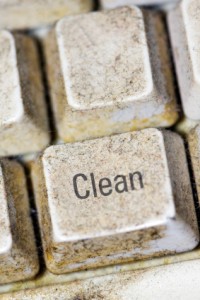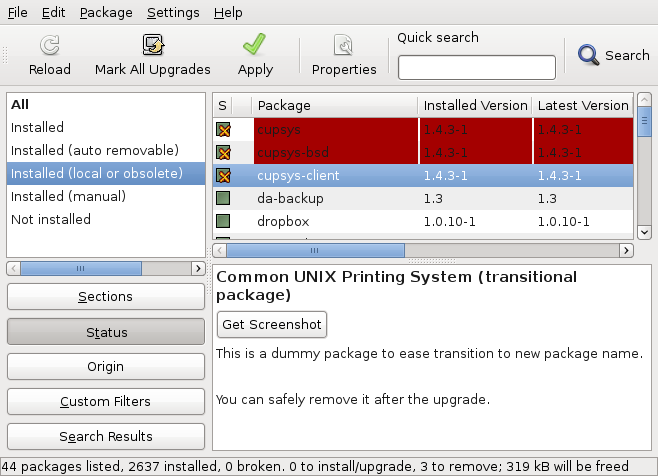 Last week, we learned to remove useless configuration files. This week, we’re going to take care of obsolete packages.
Last week, we learned to remove useless configuration files. This week, we’re going to take care of obsolete packages.
An obsolete package is a package who is no longer provided by any of the APT repositories listed in /etc/apt/source.lists (and /etc/apt/sources.list.d/). There can be multiple reasons why a package is no longer available in the repository (or at least not under the same name) :
- the upstream author stopped maintaining the software a long time ago, nobody else took over and the Debian maintainer preferred to remove the package from Debian. Usually there are alternatives in the Debian archive.
- the package was orphaned in Debian since a long time, nobody took over and it had very few users. The Debian QA team might have asked its removal.
- the latest version of the software might have been packaged under a new package name. Either because the amount of changes was so important that it was preferred to not upgrade automatically to the latest version (it has been the case with request-tracker and nagios, they both embed a version number in their package names), or simply because the maintainer wants to let the user install several versions at the same time (that’s the case for example with the Linux kernel, the python interpreter and many libraries).
- the software has been renamed, the maintainer renamed the packages and kept transitional packages under the old name for one release. Then the transitional packages have been removed.
In any case, it’s never a good idea to keep obsolete packages around: they do not benefit from security updates and they might cause problems during upgrades if they depend on other packages that should be removed to complete the upgrade.
You could blindly remove them with aptitude purge ~o (or aptitude purge ?obsolete) but you might want to first verify what those package are. There might be some packages that you have manually installed, that are not part of any current APT repository, and that you want to keep around nevertheless (I have skype, dropbox and a few personal packages for example). You can get the list with aptitude search ?obsolete…
With the graphical package manager (Synaptic), you can find the list of obsolete packages by clicking on the “Status” button and selecting “Installed (local or obsolete)”. You can then go through the list and decide for each package whether you want to keep it or not.

Follow me on Identi.ca, Twitter and Facebook. Or subscribe to this blog by RSS or by email.